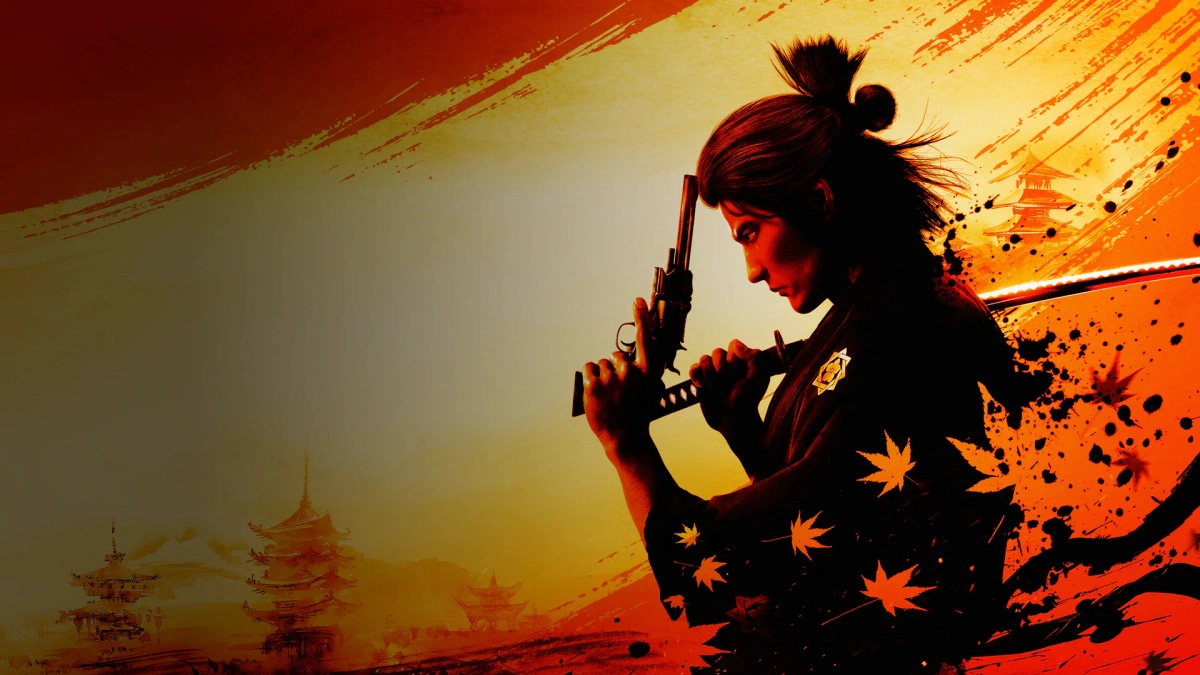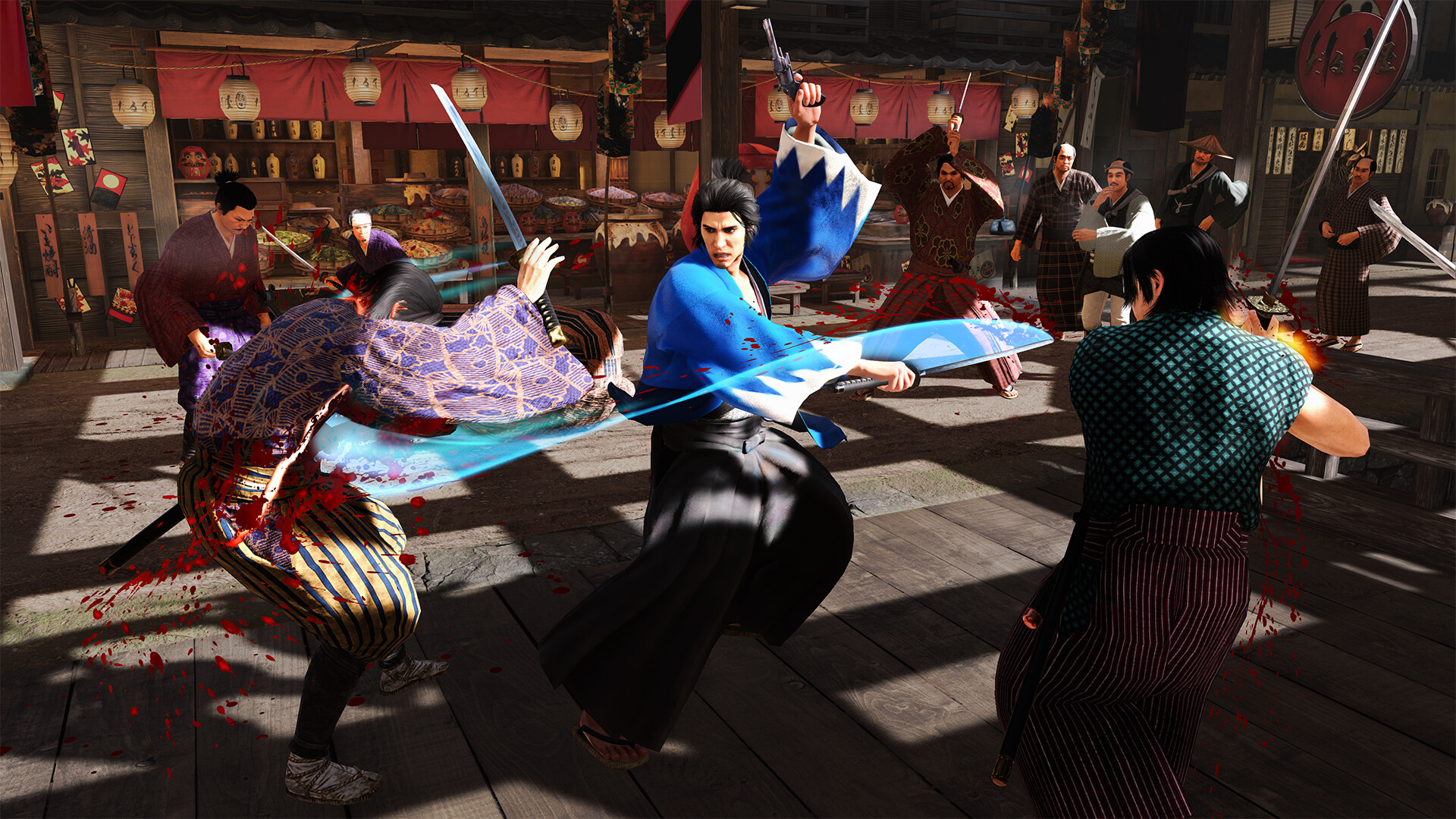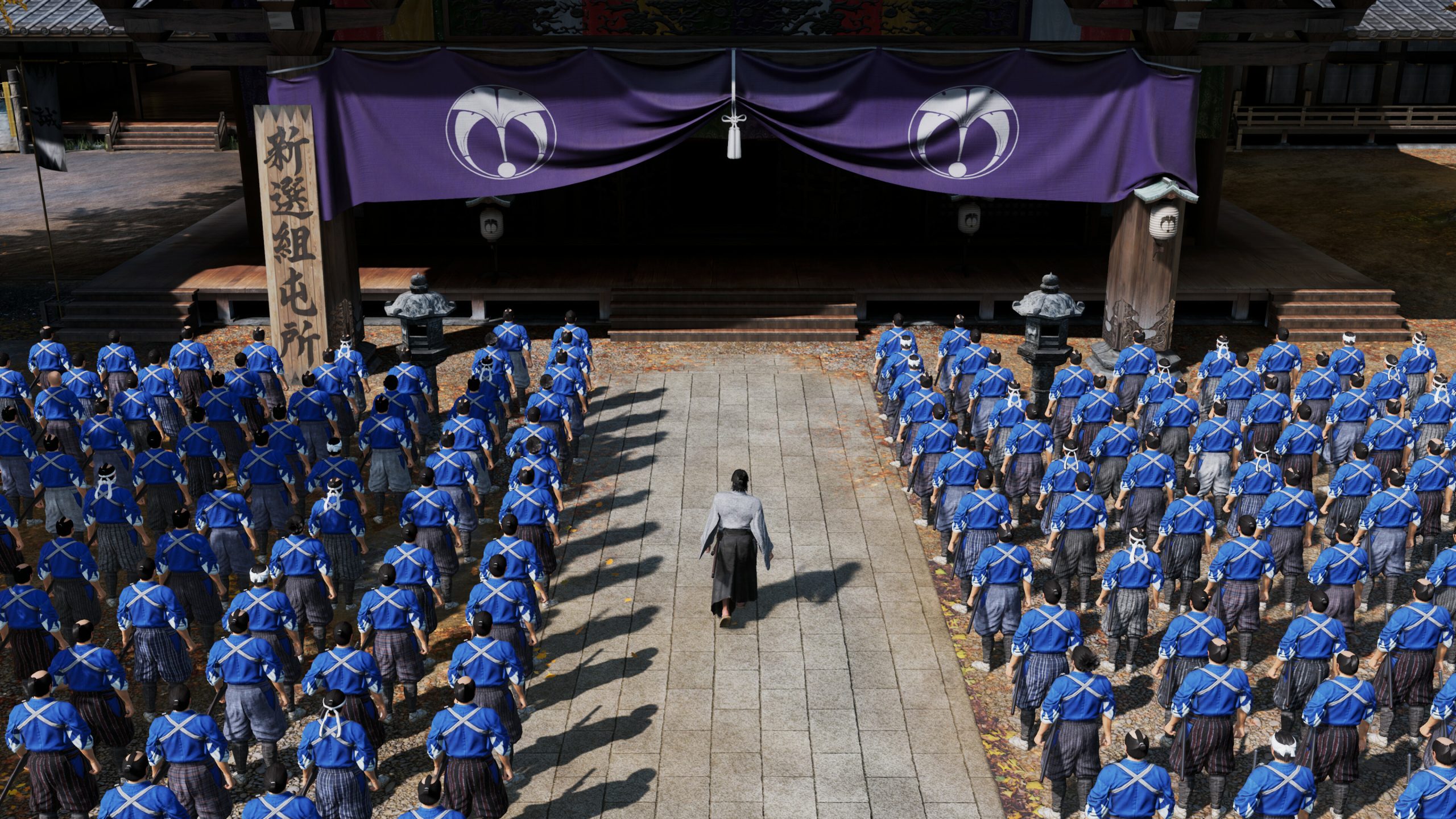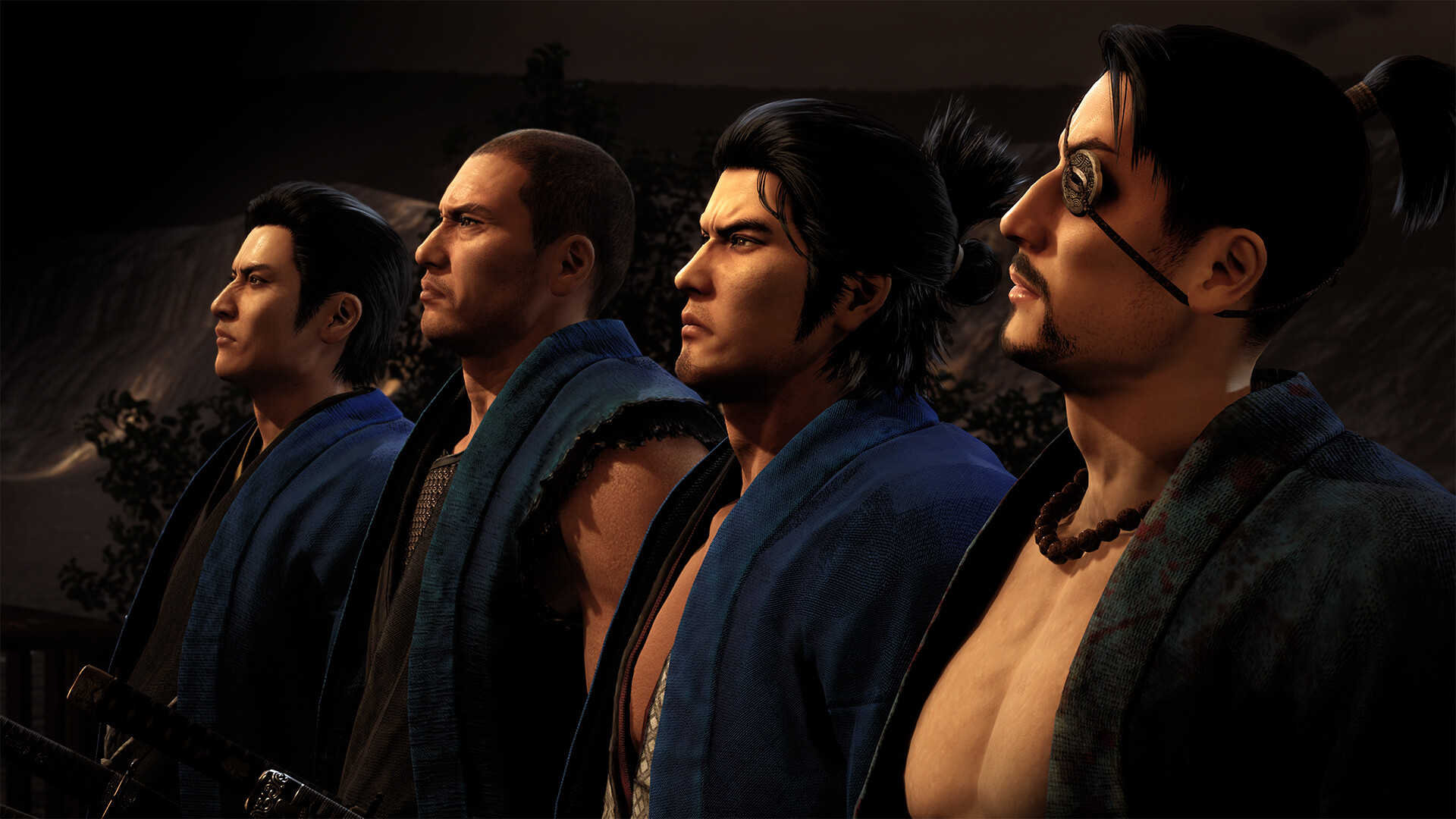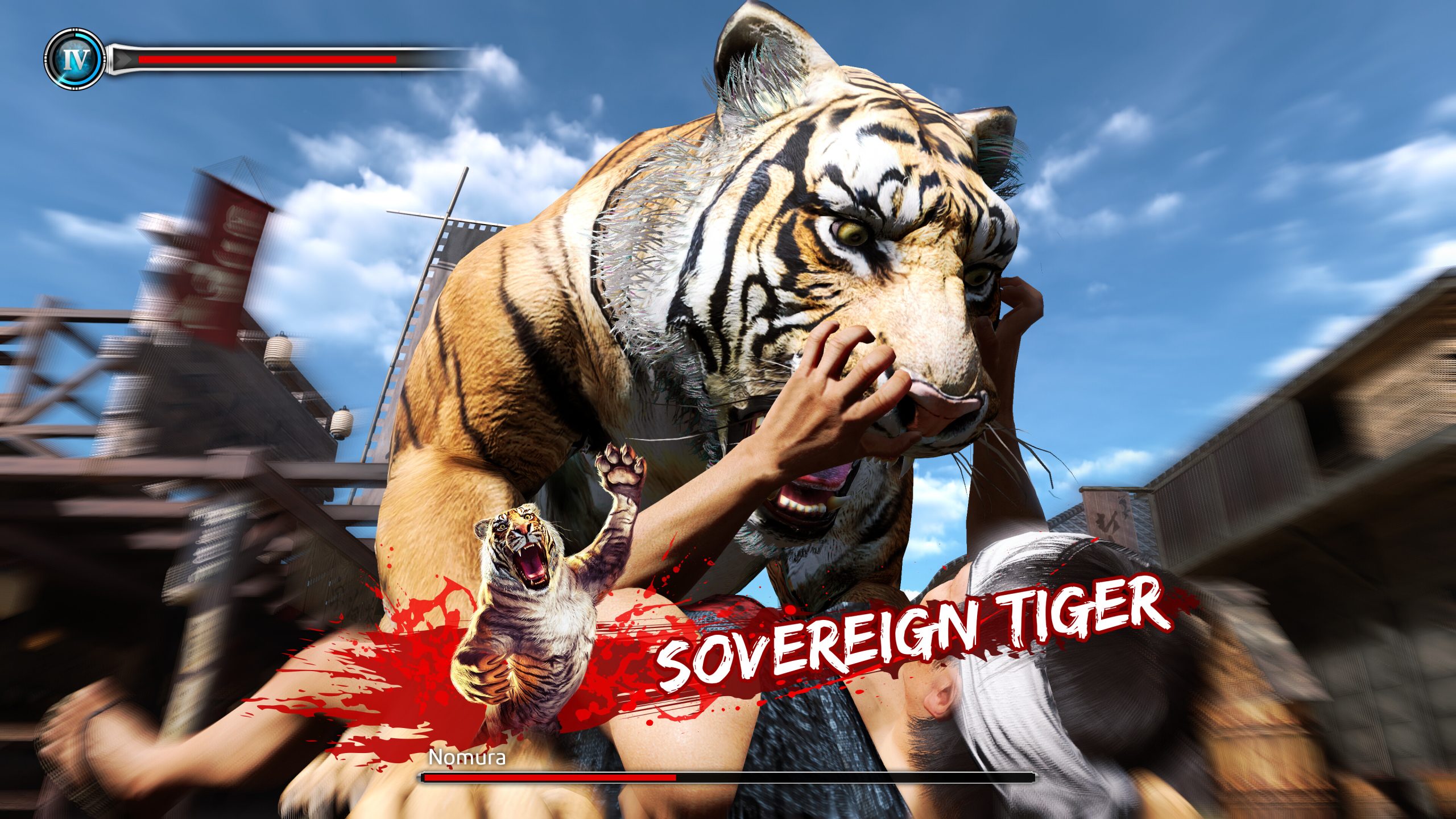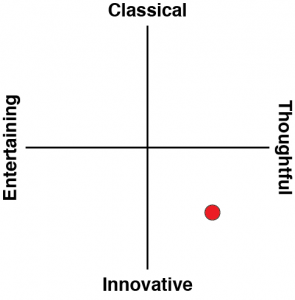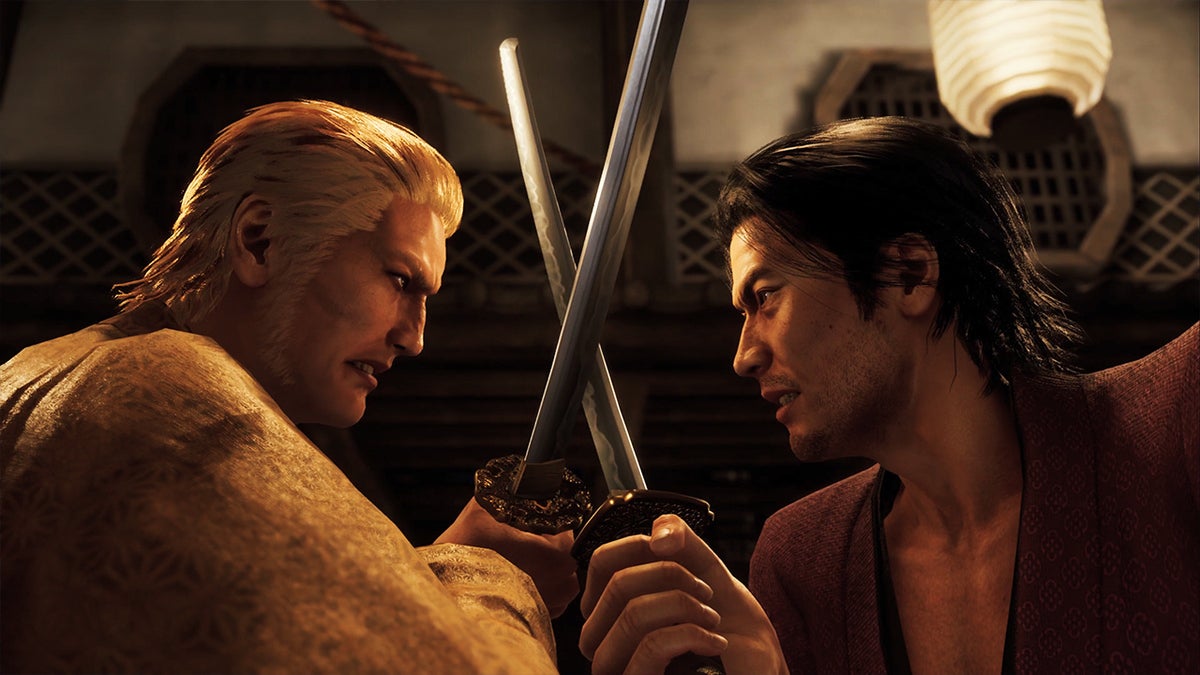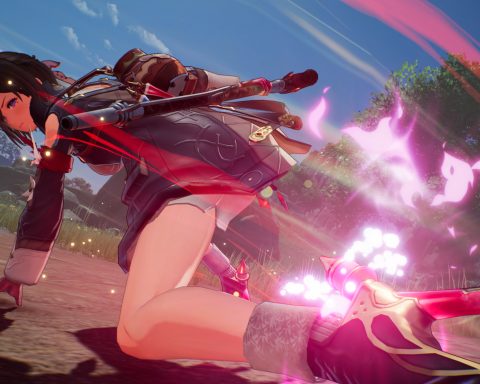There are three things I look forward to in a Yakuza game: Exceptional writing and storytelling, a vibrant and interesting open world (rare, given how dull and bloated most open worlds are), and an authentic setting that makes me homesick for Japan. Like A Dragon: Ishin! might not have “Yakuza” in the title, but it is very much one of these games… just with the added benefit of being placed in one of the most fascinating periods of Japanese history.
Related reading: The place to start with the Yakuza series is Yakuza Kiwami. Our review.
The Meiji Era – which ran from 1868-1912, was a turbulent period. Japan had previously been isolationist in nature, but America showed up, and demanded the country open its borders on the threat of invasion and annihilation (this is an aside, but Matthew Perry – the commodore, not the actor – was a monumental arsehole). Realising that they were a candidate for European or American colonisation, Japan kicked into overdrive to modernise to the point that the white folk wouldn’t try calling them “barbarians that need civilizing.”
However, for all that progress there was also a strong traditionalist and nationalist undercurrent in Japanese culture, and that group didn’t like change at all. They aligned themselves behind the Shogun (the de facto ruler of Japan prior to Perry’s arrival, but largely powerless as Japan adopted western political ideology), and tended to get very violent about it. There were outright rebellions, a lot of xenophobia and racism towards foreigners that travelled to now-accessible Japan, and plenty of plots to overthrow the government.
The Shinsengumi was one of the most powerful antagonists of the era. They were formed in Kyoto to protect the interests of the Shogun, and were, effectively, a military police force. They had a fearsome reputation and fought with distinction in several battles of the era. This is the group that sits at the core of the story in Like A Dragon: Ishin. You play as Kiryu, sorry, Sakamoto Ryōma, who was a real historical figure, but this particular take on his story is fictional. The real Sakamoto worked against the Shogun and was actively hunted by the Shinsengumi. In this game, he is also working against them, but he does so by infiltrating them and becoming one of the leaders of the group.
See, in Ishin, someone in the Shinsengumi murdered Sakamoto’s father in the Tosa domain. Sakamoto knows it must have been one of the group, because the fighting style of the assassin is only performed by the Shinsengumi. Sakamoto didn’t get to identify the assassin on the night of the attack, though, so he joins the Shinsengumi to get his detective on.
From there the plot twists and turns in a way that only the Yakuza series can achieve, and it is very much the digital equivalent of a page-turner. The only real difference is the historical period that it takes place in, and the freedom that setting gave the developers to share some new stories. Just like the brilliant Yakuza 0 took full advantage of the 80s era to craft something distinctive, so too does this game. Indeed, if you’re paying attention you’ll probably learn bits and pieces about the era while you’re at it. While the story is fictitious, the names and several key events are not, and unlike a certain other game set in Japanese history, the Ryu Ga Gotoku team actually know how to do a fictional story while remaining authentic to the real history.
I did find it surprisingly difficult to get past the use of the characters from the Yakuza series at first, though. As I joked above, I really did have difficulty visualising the protagonist as Sakamoto rather than Kiryu. The same goes for the rest of the cast. I felt cognitive dissonance seeing Haruka in a traditional kimono rather than her school uniform (and then, later, pop idol gear). Goro Majima was a particularly different character to see as anyone other than the wild yakuza, Goro Majima, too. He’s just such an iconic character.
Admittedly at first, I didn’t like the dissonance I was feeling. It was too distracting from the historical fiction I was trying to immerse myself within. But the deeper I got into the game the more I appreciated the performative nature of it. It was like these characters were actors in an NHK historical drama, and as meta as that is, it is quite appropriate for a series that has always been almost too clever for its own good. It works on a deeper level when you remember that this series is a homage to yakuza cinema, and in the history of yakuza cinema, it has often been thematically associated with samurai films (I did a video on that subject, which you can watch here). It’s layer after layer of cleverness and insightful homage to cinema that is unique to Japan’s film industry.
It’s this narrative and thematic cleverness that elevates Ishin over something like Assassin’s Creed, which is somewhat similar in intent to it. Assassin’s Creed games are much more interested in having you complete endless tasks on a checklist that continues to get longer. To facilitate that it sends you on wild goose chases across ridiculously large maps, and really just stitches a too-thin narrative together to support what passes for gameplay within it. Assassin’s Creed can be good (particularly the earlier efforts), but the narrative was only ever functional. Ishin, meanwhile, was almost certainly built from the narrative up, and everything about the game is in service to the story that it wants to share. It’s a fundamentally better approach for anyone that enjoys thinking, rather than simply mashing buttons.
That’s not to say it plays badly, though. The storytelling is just so good, and the gameplay is every bit its equal. The developers haven’t tried to overhaul the core Yakuza systems in Ishin, but rather made them appropriate for a period piece game. You’re still going to run into random encounters while exploring the map, and then have to frequently delve into “dungeons” where you’ll move through a designed area fighting off a series of enemies on the way to a boss. You’ve got four different fighting styles at your disposal, and each is useful in a different context: there’s the fist-fighting brawler, the ability to wield a gun or a sword, and the “wild dancer”, which combines sword and gun with fluid, dynamic movement. Each of these styles has its own skill tree and quirks to master, and it is fun to work on them all as they do all play differently, and you will need them in different circumstances.
Outside of combat, you’ll be able to indulge in all the standard side distractions of the Yakuza series. These range from singing and dancing minigames (with Enka-themed music!), classic board games (Koi-Koi with Hanafuda cards, Mahjong etc), hanging out at the brothel, or even indulging in chicken races (it’s exactly what it sounds like). Each Yakuza game has a “main” minigame, and in this case, it’s a Shinsengumi unit management one, where you “collect cards” (recruit followers) to support you in a series of increasingly difficult dungeon delves. Different supporters – “Warrior Cards” – don’t actually fight by your side in these dungeons, but they do give you access to different skillsets, and can level up and become more powerful as you take them with you on more delves.
I must say I would have rathered the “main minigame” not be so combat-heavy with all those dungeon delves, because you do more than enough of that in the actual main storyline, but it’s still a fun system, and there are plenty of other non-combat distractions that you can enjoy as a break, anyway. The biggest one of those is a full-on farming management game, which plays out a little like a simplified Harvest Moon, and is a great way to net money.
The other major element that people love about the Yakuza series is the side stories, that you’ll come across as you wander the city and talk to people. These range from the surprisingly sincere and thought-provoking to the downright hilarious, and that mix is in Ishin as well. Perhaps the most interesting side stories here are the ones that feature foreigners, and give the writers a chance to explore the xenophobia and racism of the era. Kiryu/ Sakamoto constantly finds himself having to step in to protect white people from roving gangs of nationalists, and the developers do a really good job of explaining all the positions and lines of thought that led to the baddies reaching those conclusions. The game is certainly not excusing that side and the racists are the bad ones, despite the nationalist sentiments largely rising from foreigners threatening the Japanese with an actual invasion and destruction, remember. What’s interesting is the fact that these themes are still relevant today, and that people are still making the exact arguments that the racists are. There’s useful commentary in these stories that people should be paying attention to.
Like A Dragon: Ishin is an almost stunningly intelligent game and in so many ways it is superior to the (already brilliant) series that it has spun off from. The historical setting really does the formula favours, and the development team have done such an exceptional and highly refined job of balancing authenticity and entertainment, serious storytelling and humour. At the same time, they’ve also maintained the core action and gameplay structures that we all love about the series. It is, simply, impossible to put down, and will be a strong contender for the best thing you’ve played this year.
